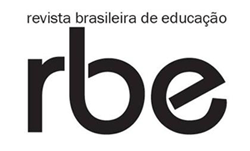ABSTRACT
In order to understand how the poor child population lived, in the interior of Brazil, at the beginning of the 20th century and to give visibility to these people and the education that was offered to them, this article presents and analyzes the type of childcare that poor and indigenous children received in a confessional school for girls, located in Corumbá, Mato Grosso. The analyses were developed from literature review and documental research, confronted and completed with interviews with some people who, as children, studied at that school. It was found that, in this institution, there were two educational realities, one for the regular students, mainly involved in school activities, and the other one, of educational-assistance character, for the assisted children, who were mainly occupied with domestic activities.
KEYWORDS
confessional school; poor children; Foundling Wheel; Mato Grosso

 Thumbnail
Thumbnail
 Thumbnail
Thumbnail
 Fonte: Coleção do Centro de Ensino Imaculada Conceição.
Fonte: Coleção do Centro de Ensino Imaculada Conceição.
 Fonte: Coleção do Centro de Ensino Imaculada Conceição.
Fonte: Coleção do Centro de Ensino Imaculada Conceição.